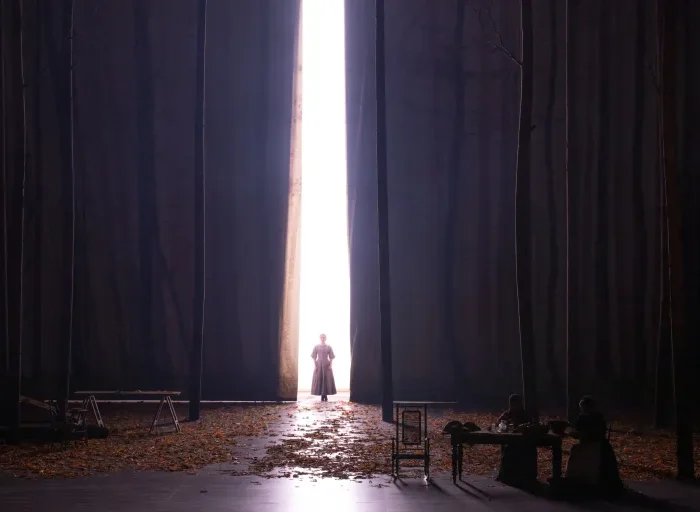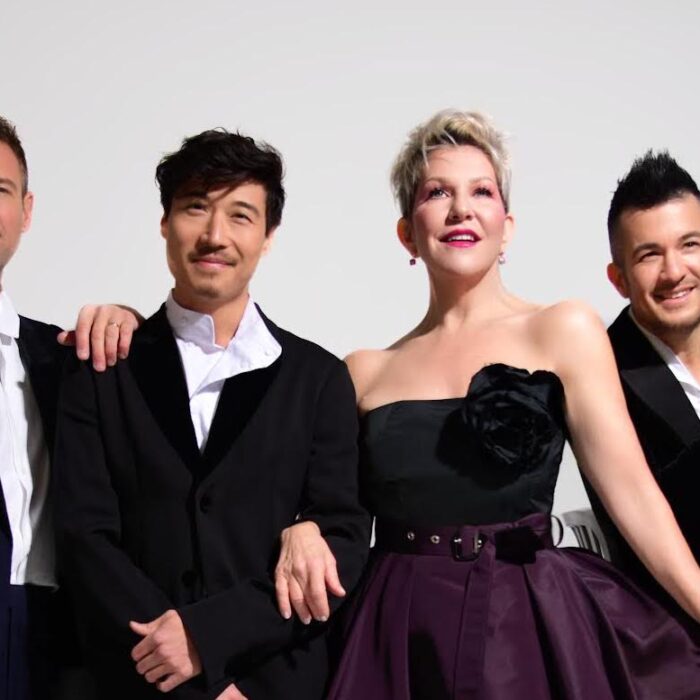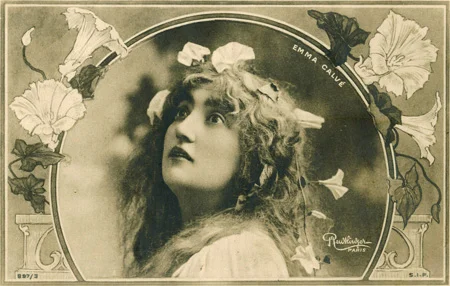
No Hero: Why Calaf Is The Dramatic Problem In Puccini’s ‘Turandot’
By David Salazar“Turandot” is one of the most popular operas in the entire canon.
It’s fairy tale story set in an ancient exotic culture and has been the base for some of the most extravagant and ingenious productions to ever grace any opera stage.
It features some of the most riveting melodies of all time (“Nessun Dorma” is but one of several amazing works) in a seeming flurry of one melody after another. And while “Turandot” is a marvel in its marriage of music and drama (the riddle scene is nothing if not powerfully executed music drama), it leaves a lot to be desired in many ways.
Obviously, the opera’s ending is probably its greatest point of contention, but one might argue that the reason why Puccini never quite figured it out, is because the seeds were not planted correctly by his librettists Giuseppe Adami and Renato Simoni.
The biggest mistake? Calaf.
The leading tenor role is framed as the great hero of the opera. He is the one with the clearest goal (to win over Turandot) and the story revolves around his journey. Moreover, throughout, he is aligned with the most morally righteous characters, which makes him virtuous by association. You have Liù, who is the ultimate chaste heroine who loves Calaf and has dedicated her life to caring for his father. Then you have his old father Timur, a deposed king, who is shown as vulnerable from the get-go. Then throw in Ping, Pong, and Pang, all of whom try to push him away from his quest to save his life – and it’s all too clear that Puccini’s librettist seeks to put us on Calaf’s side.
Puccini does his own work in this regard as well, giving the character potent melodies from the get-go that intuit his suffering and compassion for others; there is no clearer example than “Non piangere Liù,” easily Calaf’s most heartfelt music in the entire opera.
But then comes his desire for Turandot, which comes out of nowhere. He sees a vision of her and is struck and ready to do everything he can to have her.
Of course, this being opera, where emotional spontaneity has been the cause of many of the greatest romances, it is understandable on some level that he might be struck by her beauty. And to that point, one might understand his desire.
The Contradiction Begins
But then comes the other factor in the drama – Turandot doesn’t want to be had. She’s averse to having any relationship with a man and delineates her psychological state in the potent “In questa reggia.” In this aria, she notes that her ancestress, Prince Lo-u-Ling, ruled prosperously until a foreign prince raped and murdered her. She wants to avoid the same fate and asks that Calaf withdraw his challenge for her hand.
But he relents and eventually makes it through the three riddles.
It’s at this point, when the opera’s tension reaches its greatest point, that its greatest weakness comes to the forefront. Puccini is asking the audience to root for a man who would have a woman against her will. And if this point is not clear enough, once he wins the challenge, Turandot begs her father not to abandon her. Her father points to the sacredness of the oath and abandons her to her fate. If this doesn’t further accentuate why Turandot should be wary of men in power, then this drives it home rather clearly.
So at this point, Calaf is going to have Turandot against her wishes. Puccini and his librettists, of course, have a way out for the character in the audience’s eyes – Calaf gives Turandot one last salvo and asks her to find out his name by the next morning. If she figures it out, then he will submit to her and die.
And while it might point toward his fairness and goodness, it’s actually rather disingenuous in many ways. Why? Because in the next act, he’s singing about how he’s going to triumph. In his mind, he gave Turandot a riddle that he doesn’t think she can figure out.
Sure, Turandot’s been playing tricks on men with difficult riddles, but she’s doing it out of self-preservation. Calaf’s is nothing but a manipulative power play. In this context, “Nessun Dorma,” despite its exhilarating climax and passionate intensity, is rather vacuous. It doesn’t provide more insight into why Calaf needs to win (or even romantic pondering about Turandot in a way that Il Conte di Luna does about Leonora in his own “Il balen” in Verdi’s “Il Trovatore”) and hence adds little other than to lift up his spirits and the audiences’ on an immediate level.
Compare that to “Non piangere Liù” and its dramatic situation. At that point, we don’t know why Turandot is so dangerous outside of descriptions of what she does to the people around her. Liù’s fear is potent and Calaf’s corresponding reaction to her aria “Signore ascolta” comes off as sincere and truly affecting. It’s all about people trying to protect one another from physical and emotional harm. “Nessun dorma” is a man tooting his own horn, even if it is the catchiest tune in the entire canon.
But it gets worse for the character as Turandot pulls out all the stops to get his name. Of course, at this point, she’s not doing anything we wouldn’t expect. Torturing people and harming others to protect herself is something that she’s done from the start.
But people come to Calaf and beg him that he should give up his name for their sake. Calaf’s reply? “Inutili preghiere! Inuitili minacce! Crollasse il mondo, voglio Turandot!” He doesn’t care. The world could crumble around him. All he wants is Turandot.
He gets offered a number of ways out, including riches and other wives, but he refuses.
And the result is that he hurts those he loves the most. Liù, who truly loves him, kills herself for him and his father winds up wandering the lands alone; Calaf does nothing to avoid the pain of those two people that love him most. He tells them that she knows nothing and that they will pay for her pain, but never does he give himself up to protect Liù from any pain. All he cares about is his desire to have a woman that doesn’t want him.
And even when she dies, his reply is a weak “Ah! Tu sei morta, o mia piccolo Liù.” The music is undeniably riveting in its intensity but does not reveal Calaf himself questioning his actions at all. Despite Puccini’s own efforts to the contrary, Calaf’s reaction to Liù’s death is empty.
He goes on to condemn Turandot in the ensuing duet, but the rebukes are few and simply lead to him trying to push himself on her all the more. In fact, he tries to use Liù’s death to shame Turandot into giving herself up to him “Guarda, crudele, quell purissimo sangue che fu sparso per te!” If anything, she should hate him all the more and their ensuing conciliation, as framed in the oft-performed ending by Alfano, lacks in dramatic credibility.
Puccini never managed to finish the opera from this point on and the reason is as clear as can be. How can you bring together two people that are so at odds with one another? Moreover, how can anyone truly believe that Turandot would suddenly fall in love with this man, who is truly at fault for the painful death that has just transpired onstage.
Antagonist?
Calaf, in many ways, is a spiritual cousin to some of Puccini’s other villainous men. He’s no different from Scarpia in his own arbitrary desire for Tosca, who also wants nothing to do with him. And he’s like Pinkerton, who abandons a woman who truly loves him, to her own fate. The difference is that Pinkerton, as portrayed, might actually have a crisis of conscience, however small, toward the end of the opera. Calaf never does. And on some level, those characters’ motivations are clearer than Calaf’s. Pinkerton just wants to have a good time and uses his position of power to do just that, despite the pain he causes. The same goes for Scarpia, though Puccini gives him no conscience and his murder proves cathartic for the audience. We hate these men because Puccini rightly shows the suffering of the women at their hands.
But Calaf is not a true villain, especially from a musical perspective and with how things are laid out plot-wise. But, ultimately, there is never a clear motivation for him wanting Turandot, outside of it being a personal triumph or unending sexual desire. Sure, he might die and those alone are dramatic stakes, but why does he put his life on the line for THIS specific woman? Moreover, when we know that she wants nothing to do with him, his insistent desire only serves to make him come off as more dangerous and egotistical. Never in the opera do we get a moment for Calaf to reflect on why he needs to be with Turandot so we can understand his dramatic stakes. They don’t exist for him and that makes the entire dramatic situation all the more problematic.
Puccini famously noted that he wanted the ending of the opera to reflect Wagner’s “Tristan und Isolde,” an opera about the power of desire taking over two lovers who also harbor complex antagonistic emotions for one another. But when “Tristan” starts, the two lovers are already emotionally attached to one another; we are told the story that precedes their union (or disunion as Act one commences), but Wagner manages to place sufficient emphasis on their unquenchable passion for three-plus hours of music, that it is impossible not to get wrapped up in the frenzy of it all.
But “Turandot” wants to build to that point and leave us there. Unfortunately, the primary building blocks obstructed him from managing that feat. We can never feel for Calaf, an incomplete character if there ever was one, the way we do for Puccini’s other characters because we don’t understand why he needs to allow for so much pain and suffering to others so he can get a happy ending. Puccini was trying to push a square peg into a round hole.
The result is a frustrating work with some incredible music that is definitely worth listening to.


